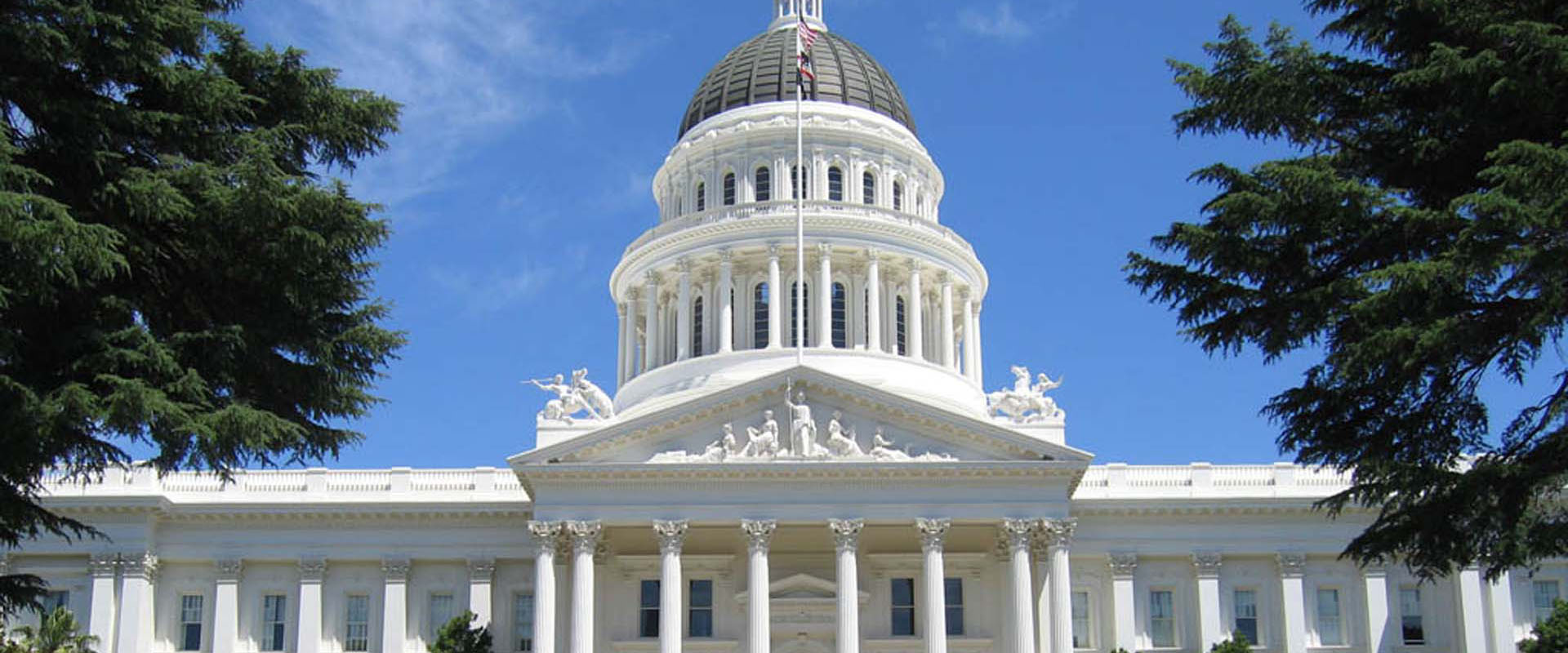California Court of Appeal Addresses California False Claims Act Claims

April 2014
Number 26
An appellate court recently issued a ruling that will make it easier for California's public agencies to seek damages for false claims made by vendors. In San Francisco Unified School District ex rel. Contreras v. Laidlaw Transit, Inc. (2014) 224 Cal.App.4th 627 (Contreras II), the California Court of Appeal addressed the concept of "false implied certifications". Such certifications can occur when a vendor or contractor submits invoices to a public agency that are unsupported or in violation of a contract with the agency creating liability for the vendor or contractor under the California False Claims Act (CFCA; Gov. Code § 12650 et seq.). The court found that a school bus company was potentially liable to a third party under the CFCA despite the fact that the school district served by the bus company was not itself involved in the false claim litigation, continued to pay the vendor's invoices, and extended the vendor's contract.
For over two decades, First Student, a school bus company, provided bus transportation for San Francisco Unified School District students. The contract between the District and First Student required First Student to provide school buses meeting state and federal safety and student transportation standards. The contract also required First Student to maintain its buses in excellent mechanical condition and appearance, and to establish and maintain a complete and effective preventative maintenance program.
In 2007, some former employees of First Student, along with an environmental nonprofit organization, sued First Student, alleging violations of the CFCA. Although the District declined to participate in the lawsuit, a private person may bring an action on behalf of a public agency under the CFCA. The lawsuit against First Student was based on the theory of false implied certifications - knowingly presenting false claims to the District by submitting monthly invoices impliedly certifying that First Student had met the terms of its contract.
Under the CFCA, a person who knowingly presents a false or fraudulent claim for payment or approval to a public agency must pay a civil penalty for each violation. Under CFCA case law, the alleged falsity must have a tendency to influence agency action or even be capable of influencing agency action. If a false or fraudulent claim does not meet this "materiality" requirement, the claimant is not liable under the CFCA.
The trial court had determined that the materiality requirement was not met because the District declined to intervene in the case or sue First Student for breach of contract, always paid First Student's invoices in full, and extended First Student's contract. The trial court concluded that the alleged false implied certifications therefore did not have a tendency to influence the District's payment decisions.
The appellate court reversed the trial court decision. The court stated that while the District knew about the plaintiffs' allegations of wrongdoing by First Student, there was no evidence that the District actually knew of such alleged wrongdoing and breach of contract firsthand. Further, the court noted that a false certification is "material" even where it only has the potential to influence the public agency's funding decision, so the plaintiffs had only to prove that the certifications could have influenced the District. Several scenarios could explain the District's continued payments to First Student. For example, the District could have accepted First Student's representation of compliance with the contract, sought to minimize expense and difficulty of investigating the allegations of wrongdoing, feared litigation with First Student, or had concerns about disrupting service. On the other hand, the District may have extended First Student's contract because it believed (perhaps wrongly) that First Student was in compliance with its contractual obligations. Therefore, the court of appeal concluded that the District's continued payments and its response (or lack thereof) to the lawsuit's allegations could be sufficient evidence that the invoices had a tendency to influence District actions.
The court of appeal also held that the plaintiffs' claims could satisfy the CFCA's knowledge requirement. A party may be liable under the CFCA if that party has actual knowledge of information and acts in deliberate ignorance of or with reckless disregard for the truth or falsity of such information. The plaintiffs argued that First Student's payment claims were presented in reckless disregard to the truth or falsity of whether the company was in compliance with its contract. The plaintiffs presented evidence that First Student disregarded its own audit policies and that there were widespread violations of the maintenance requirements. First Student countered that the California Highway Patrol (CHP) conducted annual inspections and, therefore, it reasonably believed it satisfactorily performed services under the contract. The court rejected First Student's arguments, because the CHP inspections did not ensure compliance with the contract's maintenance requirements.
Contreras II gives school districts, public agencies, or other interested plaintiffs a road map for bringing a CFCA claim under a false implied certification theory. This guidance may more easily allow claims when a public agency vendor breaches its contract but continues to submit invoices. If you have any questions regarding this opinion or the CFCA in general, please feel free to contact one of our eight offices located statewide. You can also visit our website, follow us onFacebook or Twitter, or download our Client News Brief App.
Number 26
An appellate court recently issued a ruling that will make it easier for California's public agencies to seek damages for false claims made by vendors. In San Francisco Unified School District ex rel. Contreras v. Laidlaw Transit, Inc. (2014) 224 Cal.App.4th 627 (Contreras II), the California Court of Appeal addressed the concept of "false implied certifications". Such certifications can occur when a vendor or contractor submits invoices to a public agency that are unsupported or in violation of a contract with the agency creating liability for the vendor or contractor under the California False Claims Act (CFCA; Gov. Code § 12650 et seq.). The court found that a school bus company was potentially liable to a third party under the CFCA despite the fact that the school district served by the bus company was not itself involved in the false claim litigation, continued to pay the vendor's invoices, and extended the vendor's contract.
For over two decades, First Student, a school bus company, provided bus transportation for San Francisco Unified School District students. The contract between the District and First Student required First Student to provide school buses meeting state and federal safety and student transportation standards. The contract also required First Student to maintain its buses in excellent mechanical condition and appearance, and to establish and maintain a complete and effective preventative maintenance program.
In 2007, some former employees of First Student, along with an environmental nonprofit organization, sued First Student, alleging violations of the CFCA. Although the District declined to participate in the lawsuit, a private person may bring an action on behalf of a public agency under the CFCA. The lawsuit against First Student was based on the theory of false implied certifications - knowingly presenting false claims to the District by submitting monthly invoices impliedly certifying that First Student had met the terms of its contract.
Under the CFCA, a person who knowingly presents a false or fraudulent claim for payment or approval to a public agency must pay a civil penalty for each violation. Under CFCA case law, the alleged falsity must have a tendency to influence agency action or even be capable of influencing agency action. If a false or fraudulent claim does not meet this "materiality" requirement, the claimant is not liable under the CFCA.
The trial court had determined that the materiality requirement was not met because the District declined to intervene in the case or sue First Student for breach of contract, always paid First Student's invoices in full, and extended First Student's contract. The trial court concluded that the alleged false implied certifications therefore did not have a tendency to influence the District's payment decisions.
The appellate court reversed the trial court decision. The court stated that while the District knew about the plaintiffs' allegations of wrongdoing by First Student, there was no evidence that the District actually knew of such alleged wrongdoing and breach of contract firsthand. Further, the court noted that a false certification is "material" even where it only has the potential to influence the public agency's funding decision, so the plaintiffs had only to prove that the certifications could have influenced the District. Several scenarios could explain the District's continued payments to First Student. For example, the District could have accepted First Student's representation of compliance with the contract, sought to minimize expense and difficulty of investigating the allegations of wrongdoing, feared litigation with First Student, or had concerns about disrupting service. On the other hand, the District may have extended First Student's contract because it believed (perhaps wrongly) that First Student was in compliance with its contractual obligations. Therefore, the court of appeal concluded that the District's continued payments and its response (or lack thereof) to the lawsuit's allegations could be sufficient evidence that the invoices had a tendency to influence District actions.
The court of appeal also held that the plaintiffs' claims could satisfy the CFCA's knowledge requirement. A party may be liable under the CFCA if that party has actual knowledge of information and acts in deliberate ignorance of or with reckless disregard for the truth or falsity of such information. The plaintiffs argued that First Student's payment claims were presented in reckless disregard to the truth or falsity of whether the company was in compliance with its contract. The plaintiffs presented evidence that First Student disregarded its own audit policies and that there were widespread violations of the maintenance requirements. First Student countered that the California Highway Patrol (CHP) conducted annual inspections and, therefore, it reasonably believed it satisfactorily performed services under the contract. The court rejected First Student's arguments, because the CHP inspections did not ensure compliance with the contract's maintenance requirements.
Contreras II gives school districts, public agencies, or other interested plaintiffs a road map for bringing a CFCA claim under a false implied certification theory. This guidance may more easily allow claims when a public agency vendor breaches its contract but continues to submit invoices. If you have any questions regarding this opinion or the CFCA in general, please feel free to contact one of our eight offices located statewide. You can also visit our website, follow us onFacebook or Twitter, or download our Client News Brief App.
As the information contained herein is necessarily general, its application to a particular set of facts and circumstances may vary. For this reason, this News Brief does not constitute legal advice. We recommend that you consult with your counsel prior to acting on the information contained herein.






